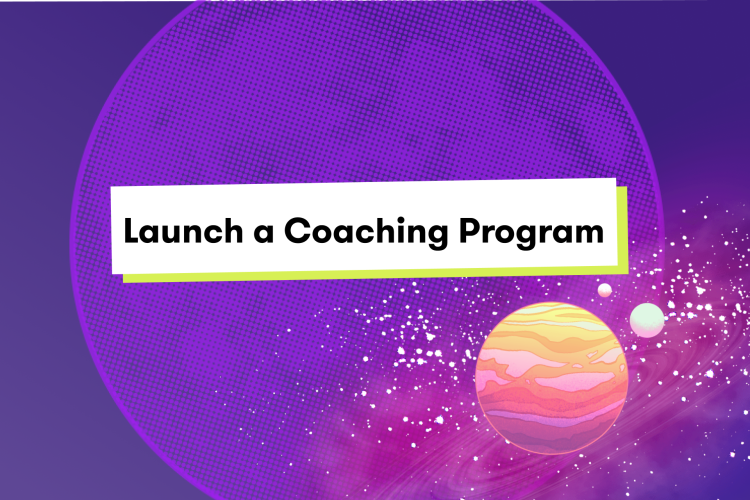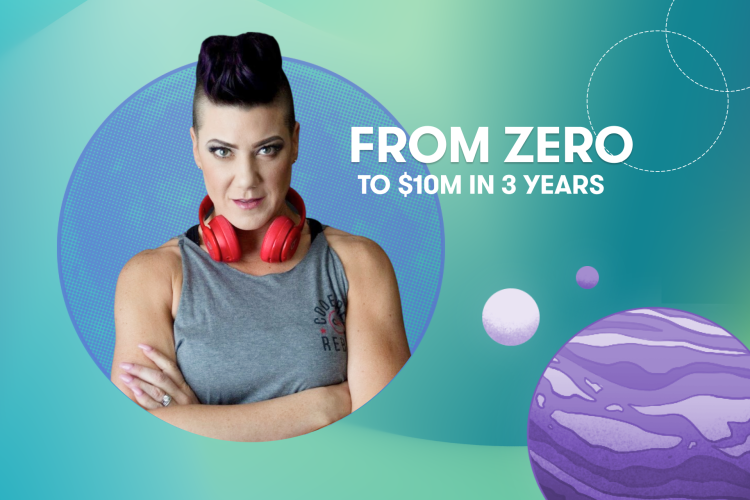Coaching
The 17 Best Online Coaching Platforms of 2025
If you’re looking for a place to host your online coaching business, these are the ones you should consider.
Author
Mighty Team
Last Updated
October 31, 2025

Table of Contents
- What is an online coaching platform?
- 17 Online Coaching Software Options (Chart)
- Why online coaches fail
- 7-figure online coaching blueprint
- What to look for in an online coaching platform
- The best online coaching platforms
- Best video coaching platforms
- Best online coaching business tools
- Success Stories
- Conclusion
In this article
- What is an online coaching platform?
- 17 Online Coaching Software Options (Chart)
- Why online coaches fail
- 7-figure online coaching blueprint
- What to look for in an online coaching platform
- The best online coaching platforms
- Best video coaching platforms
- Best online coaching business tools
- Success Stories
- Conclusion
Coaching. Is. HUGE.
There are coaches for pretty much everything. Want to master your career? Want to find a date? Want a better money mindset? There are coaches for that.
In fact, the International Coaching Federation found a 54% growth in coaches from 2019 to 2022; growing the industry by $20 billion USD.
We're seeing coaches hit 6-, 7- and even 8-figures. Imagine a business you can do from anywhere, which helps people, and makes GREAT money. It doesn’t get much better than that.
In this article, we'll show you:
Which online coaching platforms to choose for a thriving coaching business.
What to look for in an online coaching platform.
Secrets from 7-figure coaches.
The ULTIMATE online coaching business model (you’ve probably never heard of it).
Try the platform with the most $1 million communities.
What is an online coaching platform?
An online coaching platform is a digital solution that gives you the tools you need to host your online coaching business, and usually offers tools like scheduling, sales, and video meetings.
We're seeing two main types of online coaching platforms: marketplace platforms and white-label platforms.
Marketplace platforms are websites where thousands of potential clients can browse coach listings, hire a coach, and manage their relationship with them.
White-label platforms let the coach build their own brand and audience without competing with other coaches, but you’ll need to learn how to attract clients there.
Both types of platforms have pros and cons, which we’ll talk about below.
17 Online Coaching Software Options (Chart)
This chart gives a quick comparison of the best online coaching platforms and software. We go deeper into the details of each below (you can click on the options to jump to that entry).
Best Features | Use For | Cost | |
|---|---|---|---|
#1-Ranked for communities (G2); AI-boosted engagement; events + livestreams; live & async courses | Coaching communities & group coaching | $49/mo | |
Premium branded apps; proactive submissions & support | Branded app-based coaching & communities | Learn More | |
Async courses; funnels, & email | Pre-recorded courses | $149/mo | |
Coaching marketplace & listing | Getting exposure | $37.25/mo | |
Admin and scheduling | Calendar & payments for 1:1 | $33/mo | |
Online courses & landing pages with WordPress plugin | Async courses & landing pages | $49/mo | |
Ops software; marketplace; video sessions. | Scheduling & delivering 1:1 | $47/mo | |
Async courses; page-building; AI evaluations | Async courses | $59/mo + 5% Fees | |
Coaching calendar; LMS; marketing | Marketing & running 1:1 coaching | $119/mo | |
Goal tracking; app w/ 'nudges'; video coaching | Tracking apps w/ coaching programs | $60/mo | |
Video coaching; scheduling, meeting links | Video coaching | Free (45 mins) | |
Video calling; co-working, chat | Video meetings | From $5/mo/user | |
Calendar w/ Gmail integration | Scheduling | Free | |
Invite links; auto-scheduling & editing | Scheduling | Free | |
Software integrations & automations | Software automations | Free | |
Auto social media posting; multi-account management | Automating social media | $99/mo | |
Newsletter subscriptions; email lists; automations & sequences | Paid email subscriptions OR business emails | $25/mo |
Why online coaches fail
Show me one successful coach and I'll show you ten who struggle. It's a shame. Because there's limitless demand for great coaches.
As you think about the right online coaching platform, you need to understand why coaches fail:
They can’t figure out acquisition: Post on LinkedIn, but nobody's listening. Steal a "winning email strategy," and you're still struggling. Did you know a platform isn't just what you need once you have clients? The right platform helps you grow. Lesson - Look for a platform that helps you acquire clients.
They silo their audience: 100 Facebook followers. 140 on Twitter. 85 on Instagram. And 200 on your email list. Does your audience look like this? This creates confusion, plus exhaustion if you're posting in 10 places. Lesson - Look for a platform to build everything in one place.
They underwhelm: Don't promise life transformation and deliver something that sucks. You need amazing experiences and offers. Lesson - Look for a a coaching platform to elevate your offers.
They get stuck at scaling: Too many coaches get stuck in the loop of either searching for clients or spending energy on the ones they’ve got–and they’re exhausted. Lesson - A good coaching platform scales with you
If you’re struggling with one or more of these things, here’s what you need:
You need the ultimate online coaching business model (that you’ve probably never heard of).
7-figure online coaching blueprint
Can the right online coaching platform help you build a 7-figure business? Yup.
Here's a quick sketch.
Get the ideal member right: Find ONE person you can help achieve transformation.
Unlock recurring revenue: either through 1:1 coaching sessions, group coaching, or an ongoing community or membership.
Productize your offerings: Creating products gives you scale. A pre-recorded program. A high-ticket item. A premium live event. These expand your reach.
Unlock the community flywheel: Consider building an online community. It changes everything. Members offer value to each other, sharing, commenting, and building friendships. This network effect is the principle behind social media, and it's what drives all the $1 million communities we host.
We've seen this formula work again and again. So get off the social media hamster wheel. Stop buying the “get rich quick” programs from the gurus who are getting rich quick off of you.
Here are some of the awesome results we've seen:
A finance community selling a $1,000/month high-ticket coaching program.
An entrepreneurship brand launched a community to 5,000 members and made over $30,000 in 2 ½ weeks.
A health-focused brand added 100 high-ticket members and $40,000 in ARR.
A podcaster and author sold 5,000 seats to a $997 course in 10 days to existing members.
One coaching community launched a 13-week add-on course and generated an additional $100k in revenue in 2 months.
What to look for in an online coaching platform
Marketing options: e.g. email integration, sales pages, or coaching sales funnels.
Sales options: e.g. point of sale, sell in different currencies, offer bundles, products, discounts, free trials.
Courses: e.g. an online course platform for coaches (live and/or pre-recorded).
Groups: Group coaching, group management, meeting software, chat & messaging.
Community: e.g. discussion boards, member profiles, virtual events, chat, and content.
AI Tools: e.g. text or content generation, member connections, admin automations, instant landing pages, gamification, etc.
Gamification tools: to strengthen engagement and completion rates, with features like points and rewards, streaks, bonuses, and leaderboards. Automatic rewards for members who engage like unlocks, bonuses, member spotlights, or other celebrations.
Client on-boarding: features to make it easier to get members moving and make sure they stick.
Apps & Access: Make sure your online coaching platform has an app for iOS and Android.
The best online coaching platforms
1. Mighty Networks
Best all-in-one for community, group coaching, and courses
When it comes to running your own online coaching business, Mighty Networks gives you all the native features you need to grow.
Delivering Live Coaching
Sell coaching sessions and packages + bundle with other products.
Add and track memberships and automate coaching programs.
Schedule events with a click, host live meetings and group sessions.
Livestream to all your members.
Handle messaging and chat natively AND/OR connect email with the ConvertKit integration.
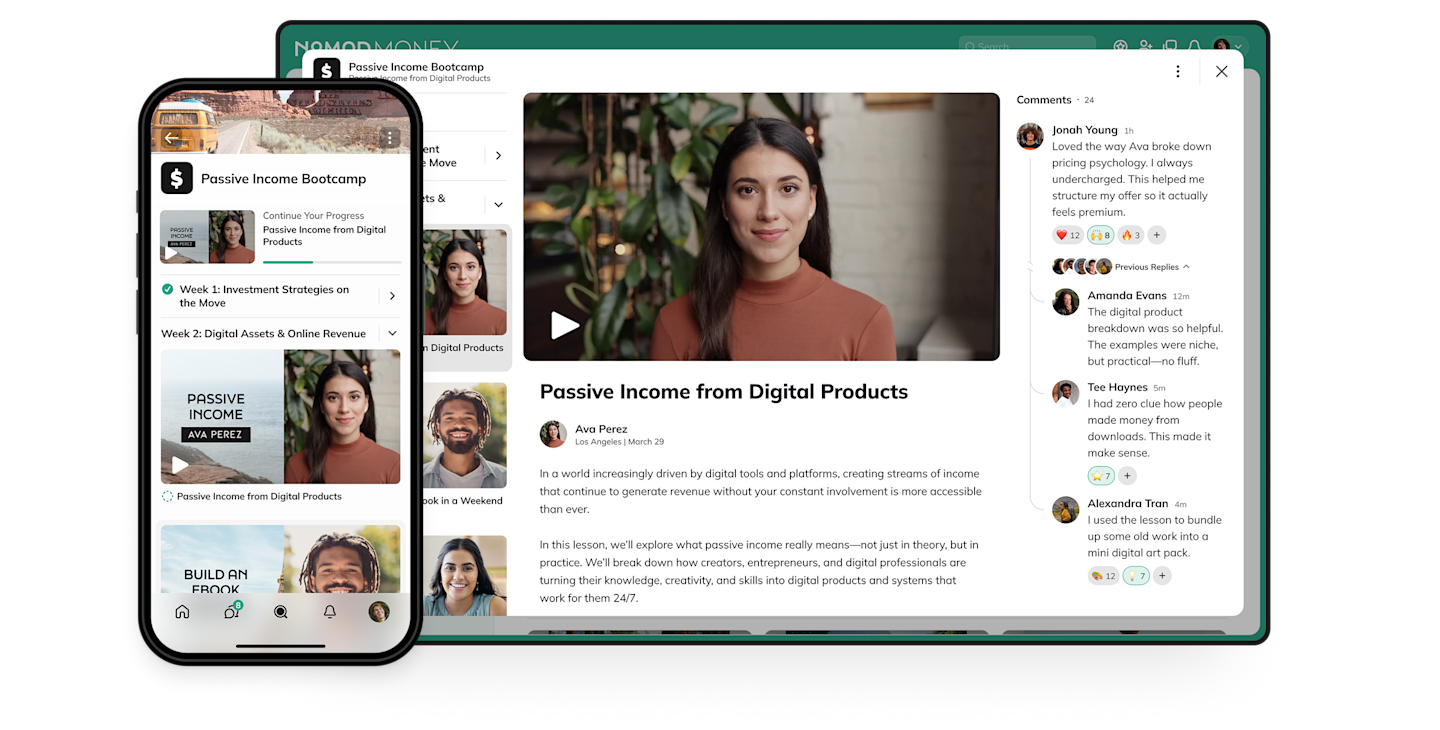
Building Coaching Products
Build programs and courses (both asynchronous and synchronous).
Create a coaching community with discussions, polls, easily-navigable forums, and tons of content options.
Add your own brand with tons of customization options or even branded apps.
Mighty grows with you as you scale, letting you easily manage dozens, hundreds, or thousands of members.
Build Real Community
For coaching communities, Mighty is ranked the #1 community platform by G2. And only Mighty has people magic, meaning it's software designed with built-in engagement strategies designed to encourage member-to-member connection.
Software that surfaces the most interesting members to each other, shows them what they have in common, and makes the introduction
Generate, approve, and schedule discussions questions to boost engagement.
Create a magical new member checklist to create engagement from day 1 and throughout onboarding
Discussions, chat, messaging, and powerful member management
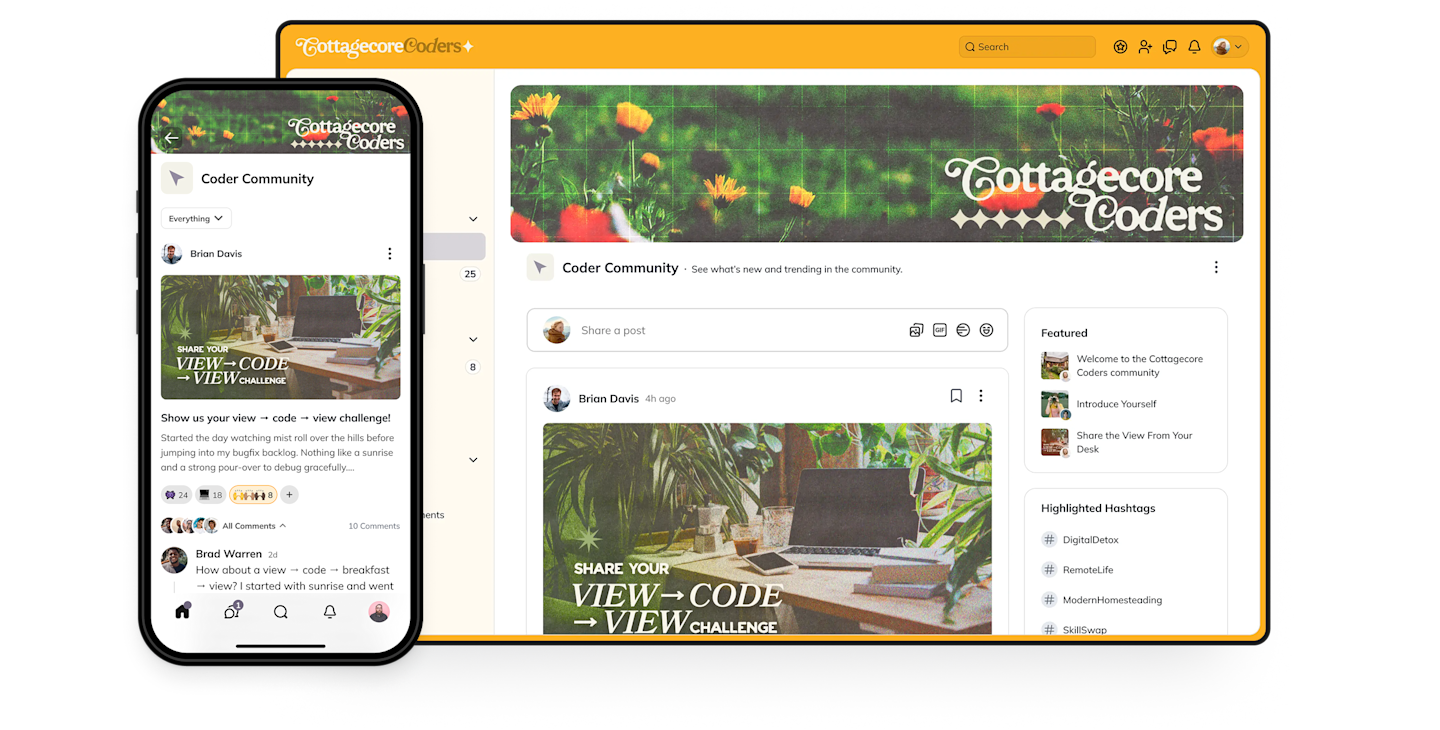
Mighty also comes with a built-in ConvertKit integration for connecting your coaching emails and your coaching platform together seamlessly. And you can embed 2,000+ other applications, like Calendly, Loom, Notion, Dropbox, and MS Forms.
And Mighty Co-Host™ --our community AI engine--can instantly generate landing pages, profiles, a brand identity, surface interesting members, automate profiles, and outline courses. It makes growing your coaching business radically easier.
Pros
Easily deliver and manage coaching
Build programs and courses (live or pre-set)
Powerful coaching community
Mighty Co-Host™ AI community builder
Dedicated Spaces you can customize and charge for
Livestreaming & live events (both native + 1-click Zoom integration)
An app for every device
Charge for coaching in your home currency
Bundle coaching, courses, etc.
Cons
It's not a marketplace with existing clients. You'll need to grow your practice and bring in members (don't worry--we'll teach you how).
Pricing
The Community Plan is perfect for monetizing a community. The Business Plan is good for a community +courses. More info here!
2. Mighty Pro
Best for building your own coaching app
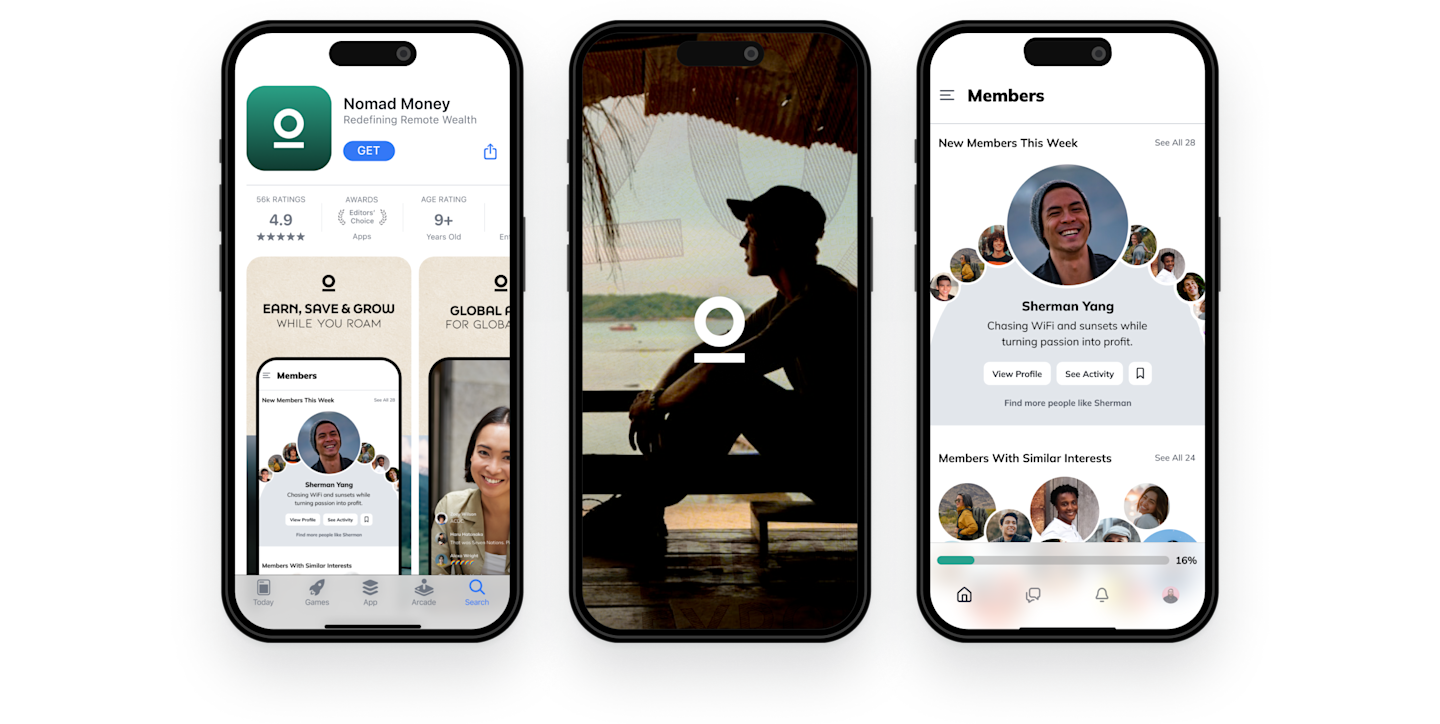
If you love the features of Mighty Networks, and want to get courses, community, content, commerce, and live events on your own branded app, consider Mighty Pro!
You can bring payments, memberships, bundles, and your calendar into one place. With our Spaces feature, you can add in livestreaming, live events, member profiles, chat & messaging, discussion forums, and all sorts of content options.
We've seen coaches reach amazing heights with Mighty Pro. These are coaches like Zac Bush MD, founder of Journey of Intrinsic Health, who sold out his high-ticket course, community, and coaching program in 72 hours.
Pros
Premium apps under your brand in the App Store and Google Play Store
A ton of features: discussions, live & pre-recorded courses, livestreaming, chat & messaging, gated Spaces, member profiles
Proactive upgrades & analytics
Run your community in a few hours a week with premium Mighty Co-Host™ features
Cons
It's a premium solution for enterprise and established businesses. If you're just starting out, choose Mighty Networks
Pricing
Pricing varies, check out our pricing page or schedule a demo
3. Kajabi
Best for marketing funnels

Kajabi is best known as an online course platform for mixing async course-building with landing pages. Mix this with comprehensive marketing tools and funnels to sell those courses, and you've got the bundle of features that's made Kajabi a market leader.
For courses:
Build out modules with text, files and videos (hosted on the third-party site Wistia).
Add email campaigns, welcome flows, and landing pages.
Create pre-packaged programs and offers.
Connect marketing funnels.
The downside to Kajabi for coaches is that it’s a course-focused business builder. It does have a very limited community option and some programming options, but community is a struggle.
Kajabi tried to remedy this by purchasing the community platform, Vibely. They used this to launch what they call Community 2.0. This gives it some streaming, live meeting, and discussion features. Which is cool.
However, getting all these features on Kajabi requires 2 logins: one for course and one for community. And 2 apps. Even Kajabi runs its own "Kajabi Heroes" group on Facebook.
All this means Kajabi is fantastic for building async courses with complex marketing funnels. It's not as strong if you want to add community, group coaching, or live courses.
It doesn’t have the complexity of community features Mighty Networks has.
Pros
Solid course builder with a good LMS (for pre-recorded courses) and flexible content options
Powerful marketing options, build in landing pages, email campaigns, and other sales triggers
A good app for every device
New AI features for course creation
Options to create programs and challenges
Cons
Extremely expensive for the course platform
Limited community options (even with Kajabi 2.0)
Multiple apps with multiple logins required to get all Kajabi features
Pricing
The basic plan starts from $149/mo, with 3 products and 3 funnels. The Growth plan is $199/mo and adds 15 products and funnels, + an affiliate program and advanced automations.
4. Noomii
Best coaching marketplace
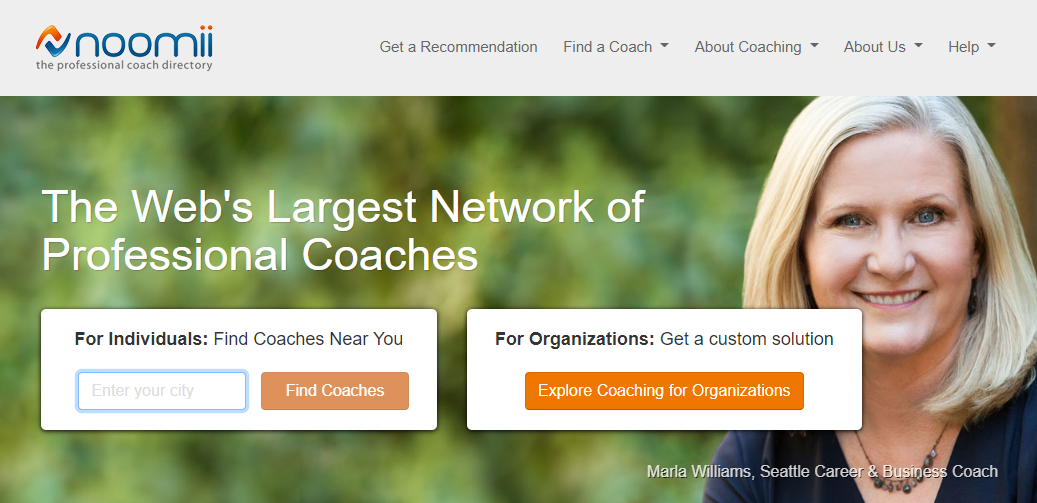
If you’re looking for an online coach marketplace to list your services on that also helps you run your coaching business, Noomii is one of the most popular. It has thousands of coaches for just about any demographic or specialty.
If you want to become a coach on Noomii, here what you need to do:
Go through their onboarding process and follow their structure.
Have a call with them to be approved.
Record a video that you will use for your profile.
Then Noomii will place you in the database of coaches and, if clients are interested in working with you, they can send you a message and schedule a free consultation.
The back end of Noomii is pretty limited, it’s primarily built for messaging. So you might choose to pair it with another platform if you wanted to build in things like courses or community. But it’s a good place to be listed if you want to get leads and clients.
The marketplace structure can be an advantage or a disadvantage, depending on how good you are at getting leads elsewhere. If you have an existing practice and are doing well, it probably doesn’t make sense to pay to get listed on Noomii–especially since you need to actually attract attention in a sea of other coaches. That’s not easy. But if you’re just starting out, listing on Noomii might be a good option.
Pros
An existing marketing system with people searching for coaches
Qualified leads can find you.
It's pretty cheap to get listed.
Cons
Need to stand out in a sea of coaches
Tons of competition
You need to be approved and follow their rules.
Limited options for actually building out your business or scaling
Pricing
Being listed on Noomii costs $447/year.
AI Community Name Generator
The real secret of this generator? It doesn't just generate names. It can also build your community website!
The magic starts with a few words about your community. Who will you bring together? What are their shared interests? Goals? Dreams? Give us a few words and we'll create some amazing ideas.
The names generated by Mighty Co-Host™ are examples only and may be used by other businesses or subject to third-party rights. For more information, check our Terms
5. Satori
Best for 1:1 coaches

Satori is a scheduling solution made for coaches. It automates a lot of processes that 1:1 coaches need to go through. Initially designed for yoga instructors, it gives you an administrative system for managing your coaching business. It lets you automate onboarding features like setting up programs for purchase, scheduling 1:1 or group sessions, and managing invoices.
Satori is built around your calendar, and clients can use it to schedule sessions with you. You can also add forms for them to fill out before you meet.
While it’s great on the admin side, Satori lacks some of the features you might look for in an online coaching platform. For example, it doesn’t let you create courses. It also doesn’t have an app to serve your clients, which is a bit tricky since the majority of internet users are mobile.
But as a web-based scheduling-only option for 1:1 coaches, it's great.
Pros
Calendar interface and easy scheduling
Automated forms and on-boarding
Package sales and invoice features
Cons
No community option
No course functionality
No app
Pricing
It starts from $33/mo (for 10 clients), $49/mo for the Trailblazer plan (50 clients + some branding), or $124/mo for the Leader Plan (150 clients + concierge)
6. Thinkific
Best WordPress plug-in for coaches
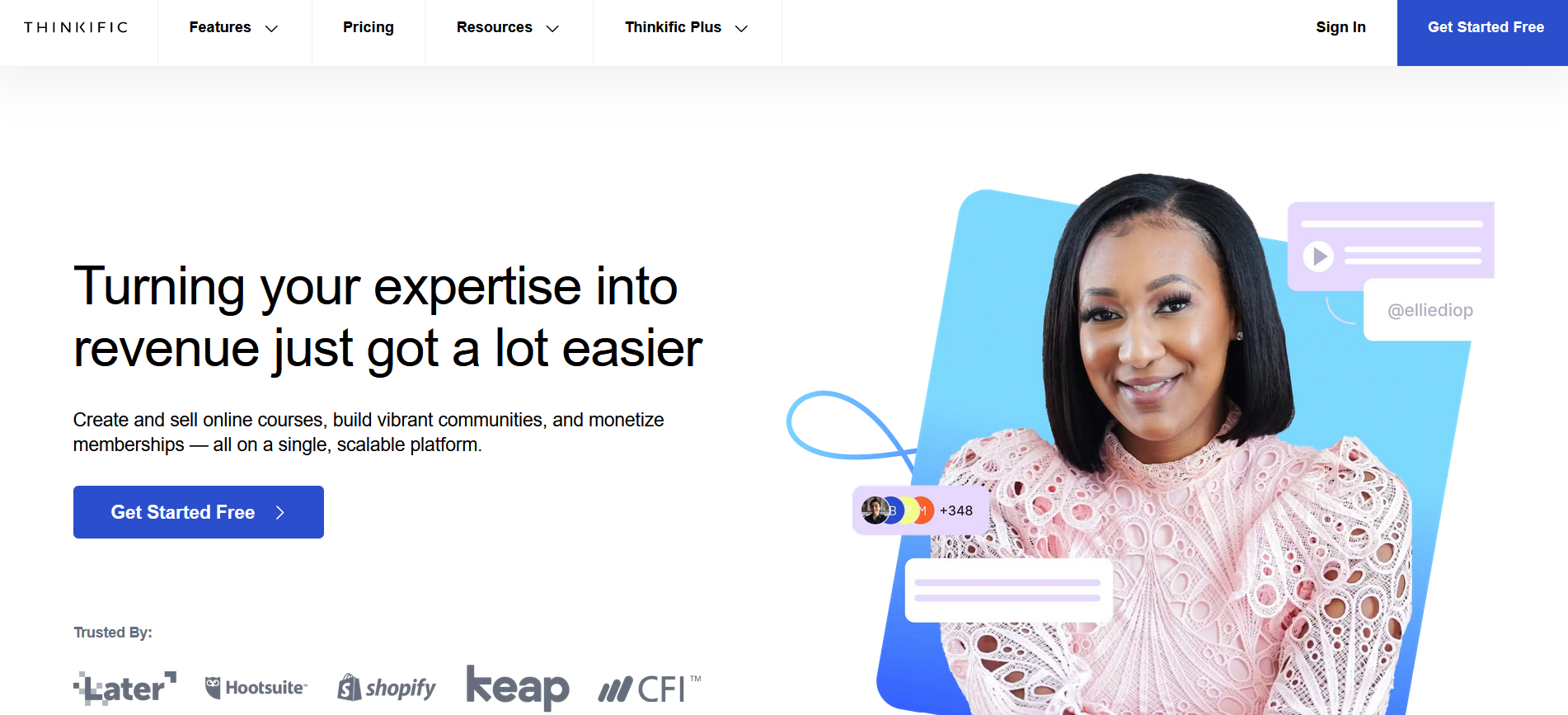
Thinkific is a possible platform for coaches to build and sell courses. If you’re a coach who has an existing website on WordPress and you’re looking for functionality to add a plugin to run your courses on, Thinkific gives you this option. But Thinkific is also a website builder in its own right.
For courses:
Drag-and-drop course builder and templates.
Live lessons or webinars
Landing pages + templates, AI content & integrated checkout
Tools for marketing courses (inc. affiliate program).
Integrate with PayPal and Stripe and sell in 100 currencies.
Thinkific has its weaknesses. In this case, it's the live learning and community functions--which is basically a simple forum.
And Thinkific's apps are really poorly-rated, the lowest of any app-based coaching platform on this list.
Pros
Build a course and landing pages
Integrated marketing (email & basic funnels)
Connects with WordPress
Cons
Limited community functions
No event functions
No scheduling functions
Poorly-rated apps
Pricing
Starts from free with limited spaces, admin, etc., $36/mo for a Basic, and $74/mo for Start (which gives you live lessons, memberships and payment plans, etc.).
7. Coaching.com
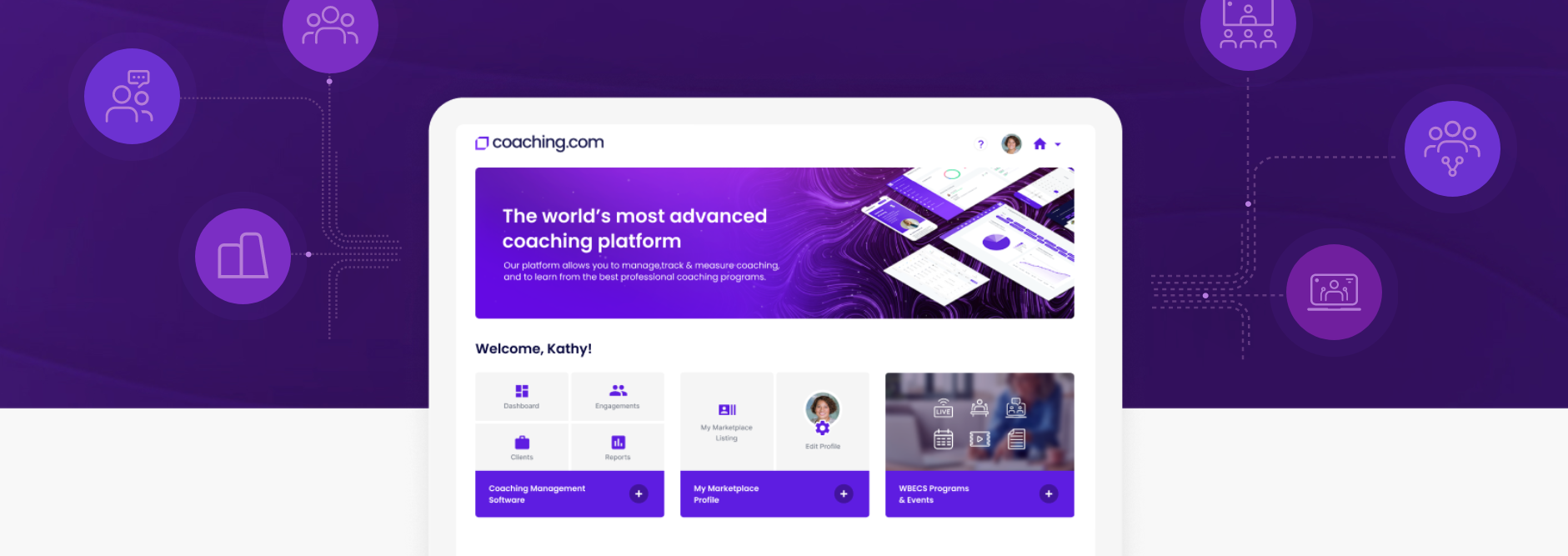
Coaching.com is another online coaching platform that’s a marketplace. It gives coaches an operations software for their coaching business, including a dashboard, a video platform, a calendar for scheduling, program templates, and notifications. You can also add session notes.
The platform is simple, but it also includes a marketplace where coaches can list their services–which could be good for exposure.
Pros
Good operations software for scheduling and tracking
Built-in marketplace
Mobile app & some custom branding options
Cons
Limited flywheel features (no community, courses, discussion forums, etc)
No way to deliver content
Pricing
Up to 3 clients at $0/mo, then $47/mo for Pro (up to 10 clients), and $97/mo for Premium (unlimited clients).
8. Teachable
Best budget course-only platform
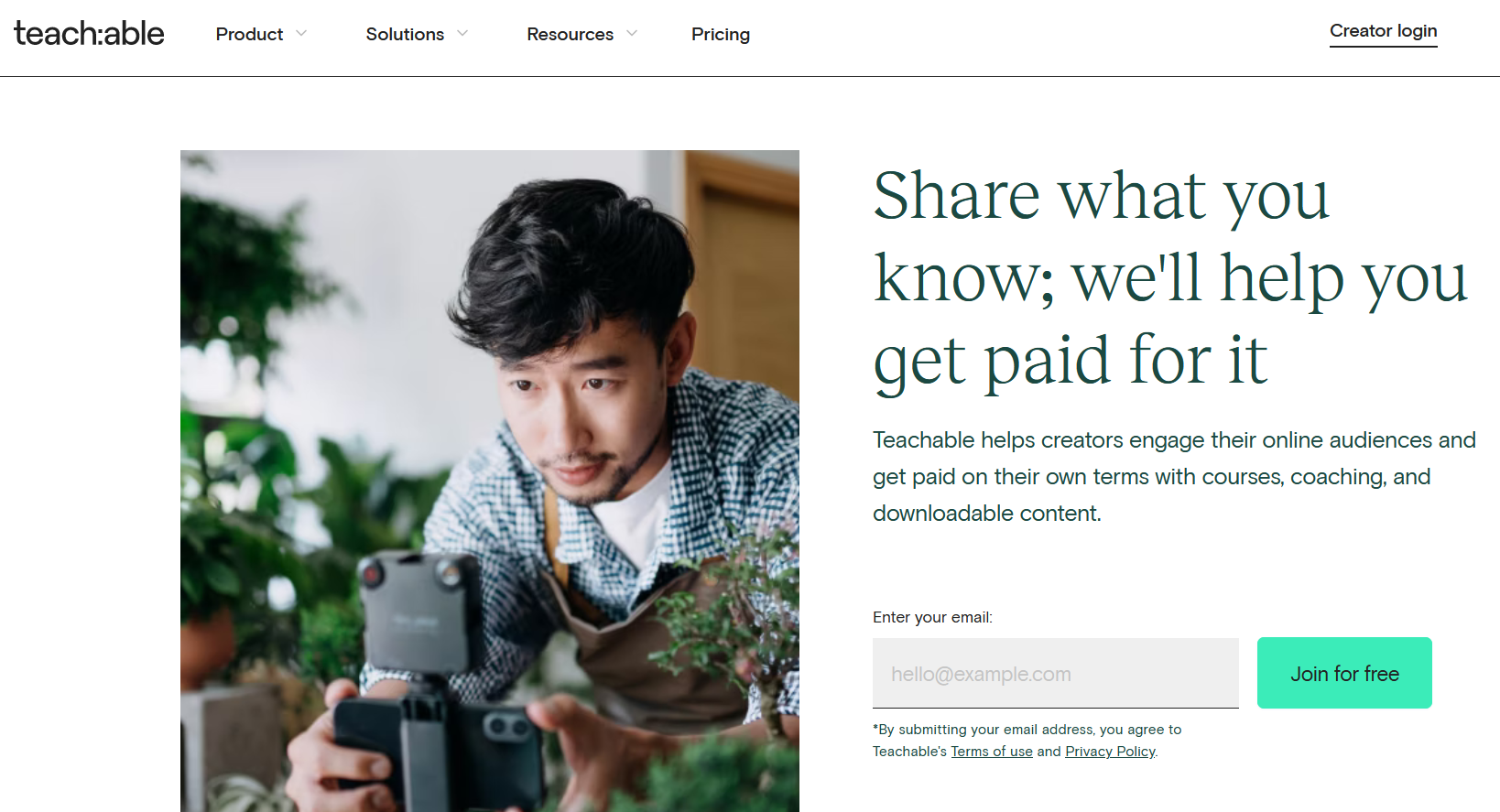
If your online coaching practice only needs an asynchronous course platform (that’s pre-recorded for the cool kids), Teachable might be an option. It has a good LMS for static courses and the option to build landing pages, offers, customize, and even sell with affiliates.
Pros
Solid LMS with course options
Good native video options
Cons
No community
Limited mobile app access (it only has iOS)
Pricing
$69 + 5% transaction fee (5 products); Pro is $159/mo for a 0% transaction fee and 50 products; Pro+ $249/mo.
9. Kartra
Best Kajabi alternative for courses + marketing

Kartra is similar to Kajabi. It has a lot of the same features but isn’t quite as comprehensive. It has a coaching calendar built-in for 1:1 coaching sessions, and like Kajabi, it has a marketing platform to help you run a funnel and convert leads. It has built-in email marketing, and an LMS for creating courses and programs.
Pros
Good marketing features (email, landing pages, etc.)
LMS for courses
Calendar for booking sessions
Cons
No community features
Not as strong as Kajabi (but almost as expensive)
Pricing
Up to 2,500 leads is $119/mo; Silver plan is $229/mo for up to 12,500 leads with unlimited emails, pages, products, etc. The Gold Plan is $339/mo and adds up to 25,000 leads with 5 custom domains.
10. Nudge Coach
App for courses & “nudges”
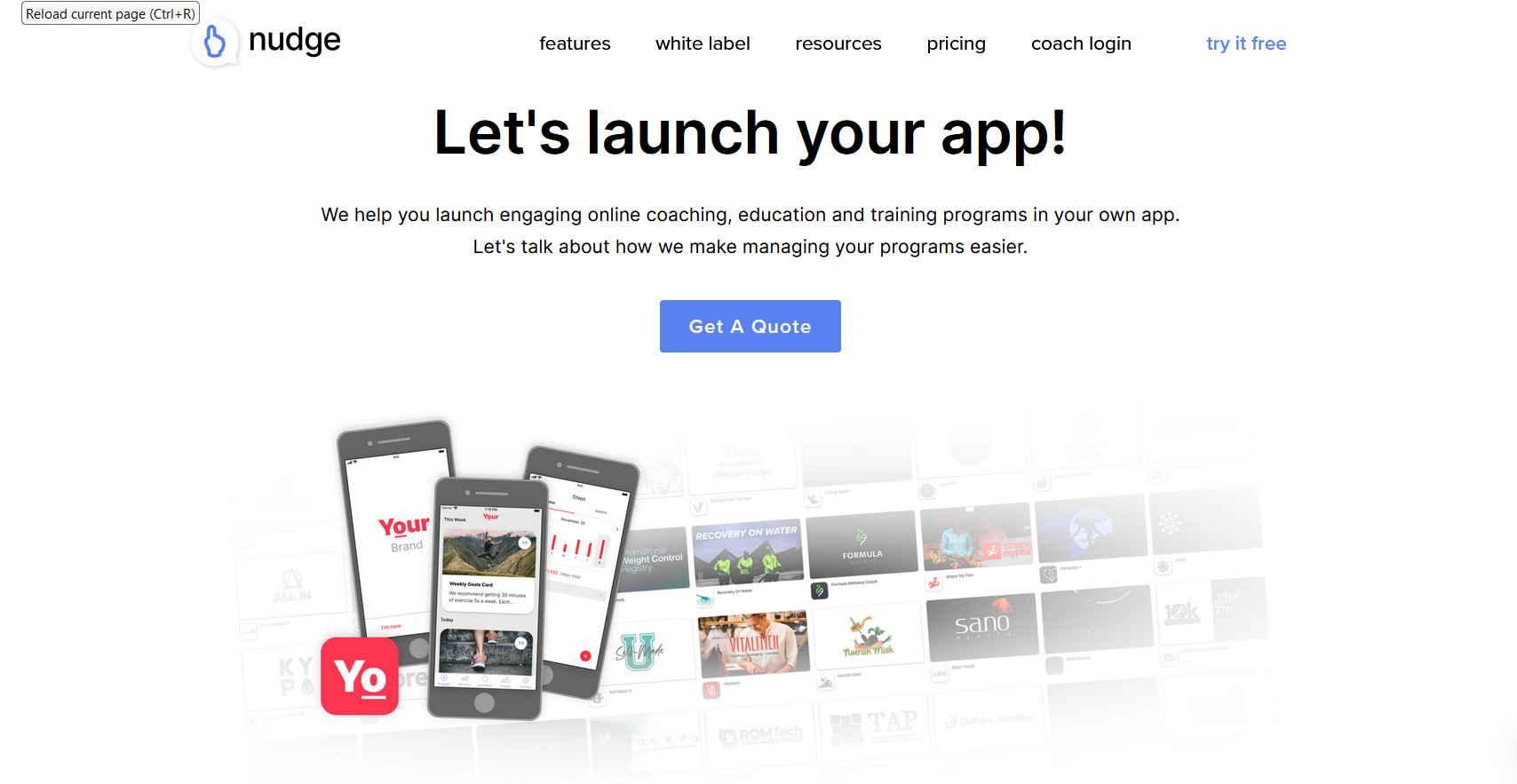
Nudge Coach is an app for an online coaching practice that lets you build your own coaching programs using video lessons and automated prompts– which they call “nudges”. It feels a bit like a social media platform, you can create inspirational cards (that look like Instagram).
It’s got messaging included, so you can chat with clients. And you can get your coaching practice on a branded app.
Pros
Good features for goal tracking & plans
Chat & messaging + scheduling
Cool video-based coaching packages
Branded app options
Cons
No real community, group, or event features
Customized branding is quite limited
Pricing
Up to 5 clients free, $60/mo for up to 50 clients, $100/mo for up to 100 + white-label options that require a custom quote.
Best video coaching platforms
11. Zoom
It came of age during the pandemic, but there’s still nothing quite like it. Zoom lets you host 1:1 coaching sessions OR group sessions. It has a lot of flexibility with scheduling, GCal integrations, and you can keep your coaching session secure with a password. With backgrounds, multispeaker views, and even some ways to monetize your community of fitness enthusiasts, it’s a tool most online coaches should have in their arsenal.
12. MS Teams
Built as Microsoft’s answer to Slack, MS Teams has a better video platform than Slack does (it’s more intuitive) and functions more as a chat and conferencing platform. It’s a great tool for coaches as an alternative to Zoom.
Best online coaching business tools
What are the other tools for running an online coaching business? Well, here are a few that coaches rely on. (Note that some of these are built into the coaching platforms we talked about above!)
13. Google Calendar
It’s still one of the cheapest shared calendar options for coaches and works well!

14. Calendly
A step up from GCal, it lets you send a scheduling link and clients can schedule a session.

15. Zapier
For any integrations you need, Zapier can help you run different software together smoothly (check out a list of Mighty’s Zapier integrations here).

16. Hootsuite
If you’re trying to create a consistent social media presence, Hootsuite is a good option for managing your channels and scheduling your posts in advance.

17. ConvertKit
A fantastic email tool that can run campaigns (both live and automatic). It gives you tons of tools for sorting followers and building your list with custom landing pages and forms.
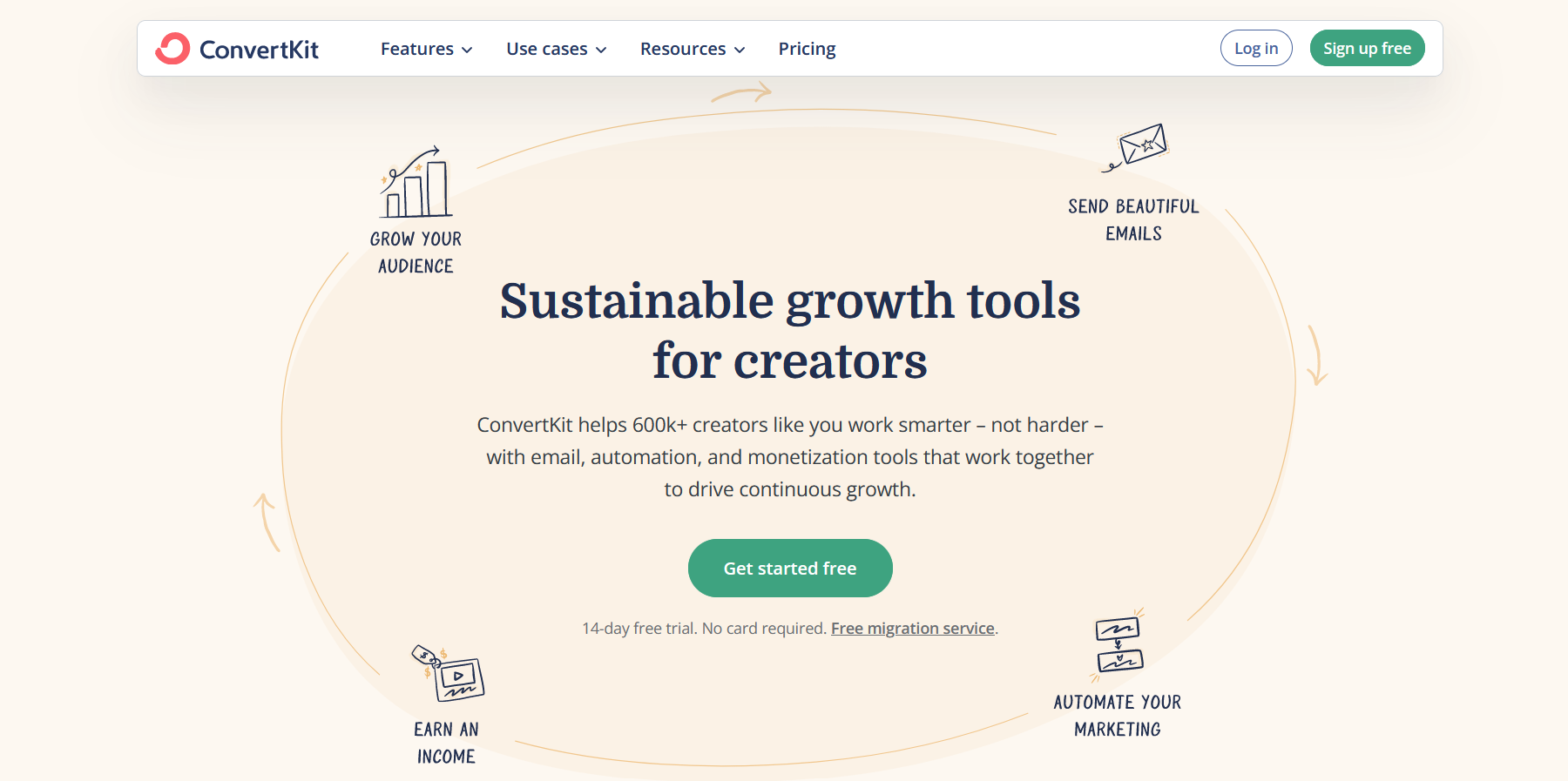
Success Stories
Eric Tivers is a clinical social worker who shifted to an online community and coaching practice to help adults with ADHD.
Emma Johnston and Eleanor Mann formed The Reconnected, using their expertise in breathwork and play therapy to help parents be more present and regulate emotions.
Amanda Northcutt runs Level Up Creators, coaching subject matter experts to create recurring revenue from their work.
Marie Forleo uses coaching and community to help entrepreneurs build thriving businesses.
CloseForChiro is a coaching program and community for chiropractors building their own businesses.
Zach Bush MD leads a high-ticket, health coaching program, along with courses and community.
Conclusion
Finding the right online coaching platform can make all the difference in how you grow, scale, and serve your clients. Whether you’re looking for a community-driven experience, a streamlined course platform, or powerful scheduling and automation tools, there’s an option out there for you.
Find out more!
FAQs
1. What’s the difference between an online coaching platform and an LMS?
An online coaching platform has a whole suite of tools for delivering different experiences: audio, video, scheduling, and learning. A learning management system (LMS) is a software solution for delivering learning material–usually an asynchronous course with a table of contents and integrated lessons.
A coaching platform can certainly include an LMS with it, as several of the options above do. But having only an LMS limits what you can offer in a coaching package.
2. Should I use a marketplace platform or a white-label coaching platform?
It depends on the coach. Here are some of the pros and cons of each:
Disadvantages
Marketplace
Fighting to get seen in a huge library of coaches, and you may have limited control over how you serve and connect with the clients you do land.
There could also be a fee per client, depending on the platform.
No control over branding or feel.
No control over features (if delivering coaching on the marketplace)
White-label
There’s no built-in client acquisition.
You pay a fee for the software.
Advantages
Marketplace
Lots of potential clients looking for coaches. It could be easier to get seen and get exposure.
Some marketplaces may give a sense of legitimacy
White-label
You need to bring your own clients, but you get total control over how and what you offer for coaching.
Keep more of your money.
Build and serve under your brand.
More flexibility in features and program-building.
You own the relationships.
3. Can I run a coaching business without a website?
Probably! Many of the software options on the list above are coaching platforms, not website-based–so it really just depends on what works for you and your clients. If you feel you need a website to gain legitimacy and visibility, go for it. But there are many coaches without websites–especially since you can do so much on online coaching platforms, social media, email, marketplace platforms, etc.
4. How do I price my online coaching program?
It depends on the program itself. But in general, it’s good to think about results-based pricing. What would the result be worth to someone? The price of coaching should be indexed to that number. For example, a high schooler getting better at public speaking could be worth something. A CEO improving public speaking might be worth millions. It all depends on the value of the result to an individual.
Building a coaching business is also a lot easier if you think about high ticket offers. Pricing at high price points helps you build a sustainable business with fewer clients. And your clients will see much better results by paying enough that they pay attention.
For more details, check out our separate article on pricing online courses—the same strategies work great for coaching programs too.
5. What’s the best way to get coaching clients online?
Every coach has to find what works for them. But here are some of the most common ways to grow your coaching business.
Starting a dedicated membership or community with a core group of Ideal Members and letting organic growth happen over time.
Getting on social media, YouTube, publications, etc. to raise your profile and grow a following.
Listing with an online coaching marketplace.
You’ll learn all you need to know from this video.
6. Can I offer both live coaching and pre-recorded courses?
Definitely! You can mix and match parts or all of your program. There’s no one way to create transformation for your Ideal Members. If you want to scale your work by offering a pre-recorded course mixed with live sessions, go for it!
This is where the right online coaching platform can help. For example, hosting live discussions, training, or group coaching is easy on a Mighty Network. But it’s also easy to take the recording of that session and resell it as a course (with participants’ permission of course!).
7. Do I need a business license to start an online coaching business?
Probably! If you’re collecting any money at all from clients, it’s important to check with your local jurisdiction to figure out licensing and taxation rules. Depending on the coaching type, there may also be professional credentials required before you can work. Do your research up front so you don’t get burned later.
Here are some common coaching accreditations:
International Coach Federation (ICF) Certifications
Professional Certified Coach
Master Certified Coach
Life/Personal Coaching
Certified Professional Coach by the Institute for Professional Excellence in Coaching (iPEC)
Certified Life Coach by the Life Coach Training Institute
Executive/Business Coaching
Board Certified Coach (BCC) by the Center for Credentialing & Education
Certified Executive Coach by the Center for Executive Coaching
Certified Business Coach by the Worldwide Association of Business Coaches
8. How do I make my coaching offer stand out?
It’s not just about the niche. It’s about having a really clear Ideal Member. This Ideal Member needs to be a person in transition, and you need to understand how to bring them to the other side of that transformation. And you need to show them you’re the person to do this.
If you’ve clearly defined your Ideal Member, it’s way easier to stand out. Because you can stop trying to convince people to buy an offer that’s not for them, and focus on finding the people it is for.
Again, Mighty’s CEO, Gina Bianchini, has done some incredible training on finding your Ideal Member. So check it out here!
9. Can I run a coaching business part-time?
Absolutely! Lots of online coaching businesses are run part-time. Be clear on your Ideal Member and what they want, keep it simple, and use a great platform to make your life easier! You can run a successful coaching business in as little as a few hours a week.
10. What are some AI tools & automations coaches can take advantage of?
AI-powered engagement features, like member matching and introductions. This feature can help members meet each other and grow friendships.
Content generation and scheduling. Ideally, AI shouldn’t replace your creativity. But it can help augment it, with scheduling and automations to keep you consistent.
AI and automations for admin to make running a community easier. Things like checking member status, payment reminders, or flagging lapsed members.
Email & marketing automations to help you reach your members and–when the time comes–make the sale.
Advanced analytics and reporting to help you track your business growth, member transformations, and understand issues like churn or low completion rates.
Automations for onboarding–creating incredible new member journeys to help people get in and moving when they join your program.
11. What are some mobile app functions coaches should look for?
Here are some of the main ones:
First of all, does the platform have an app? Is it available on every type of device? Is it well-rated in the App Store and/or Google Play?
Check user experience (UX) with online reviews and by downloading the app to try it! Make sure the features are the same across the web app and mobile with the same quality. Look for intuitive navigation and quick load time.
Make sure you can create the content you need from the app: posts, livestreams, programs, courses, etc. Not every platform works well with app content creation.
Check the white-label options, to have the app deployed under your own brand. Look for splash-screen and icon customization and a proven track record by the company.
12. How do I start online coaching?
Here’s a quick guide.
Decide on your Ideal Member. Choose one type of person in transformation that you know you can help hit that transformation.
Make sure you have the right certifications (if applicable).
Reach out to potential Ideal Members for interviews. Ask discovery questions to understand their pain points and what they need from a coaching program.
Create an offer and figure out how you coach best.
Find a place to host your coaching program. If you are building on a coaching platform, create your brand and any relevant program material. If you’re listing your services on a coaching site, do that.
Start with beta clients, testing your program and refine as you go.
Be patient as you grow your reputation and social proof. As you grow, learn to scale (e.g. group coaching, pre-recorded program elements) and master the transformation.
13. How profitable is online coaching?
The most recent data (2023) from the ICF suggests that online coaching is a $4.564 billion industry, a 60% increase from 2019. The average annual income of coaches was $52,800 USD. However, the same study found that 53% of coaches globally make less than $30,000. This suggests a wide variety of income levels for coaches, with a handful vastly out-earning the rest.
Nevertheless, online coaching can still be quite profitable. With 0 overhead, the possibility to work from anywhere, and total feasibility even part-time or as a side hustle, it’s easy to start and endless to scale.
14. What should a coaching package include?
First, a coaching package needs a clear transformation promise to a specific Ideal Member. We call this a Big Purpose.
It needs a clear roadmap for how transformation is achieved that also sets expectations.
It needs a step-by-step move through the transformation with a mixture of in-person or content guidance.
It’s great to have forms of accountability and community built in. For example, this could include group coaching, a membership, or periodic events.
It should include any necessary forms and background including waivers, personal info sheets (if applicable), and resources (e,g, background reading).
It should include contact information and any relevant service or communication channels (email, community forum, chat).
It could include resources for personal goal setting and progress tracking.
15. Which platforms let me sell both one-on-one and group coaching packages from the same dashboard?
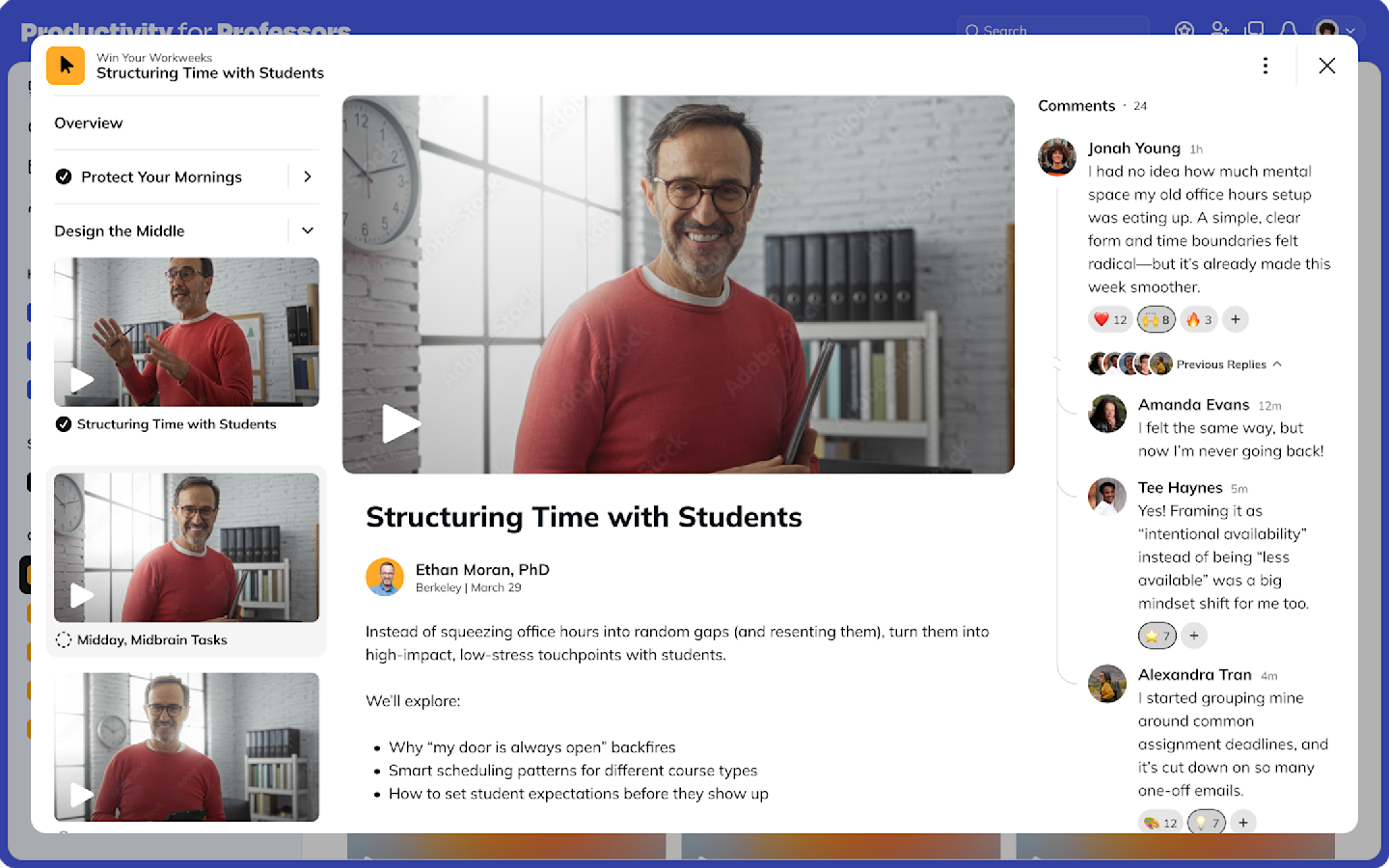
Try Mighty Networks! It’s G2’s top-rated community software, and you can embed Calendly directly into it. This creates a booking calendar in your community software, allowing clients to schedule directly. But in the community, you can host courses, discussions, events, and chat, bundling and gamifying your coaching program.
16. What makes a great online coach?
These are a must:
A clear understanding of the Ideal Member and how to facilitate their transition.
A warm, open style that can come across even virtually.
An understanding (or willingness to learn) about virtual platforms and how to run an online business.
Knowing how to create engagement and accountability, even virtually.
Depending on your business model and how you attract clients, it can also be valuable to understand some of the basics of content creation and online marketing–but it’s not absolutely necessary.
17. Which platform offers the best mobile experience for clients?
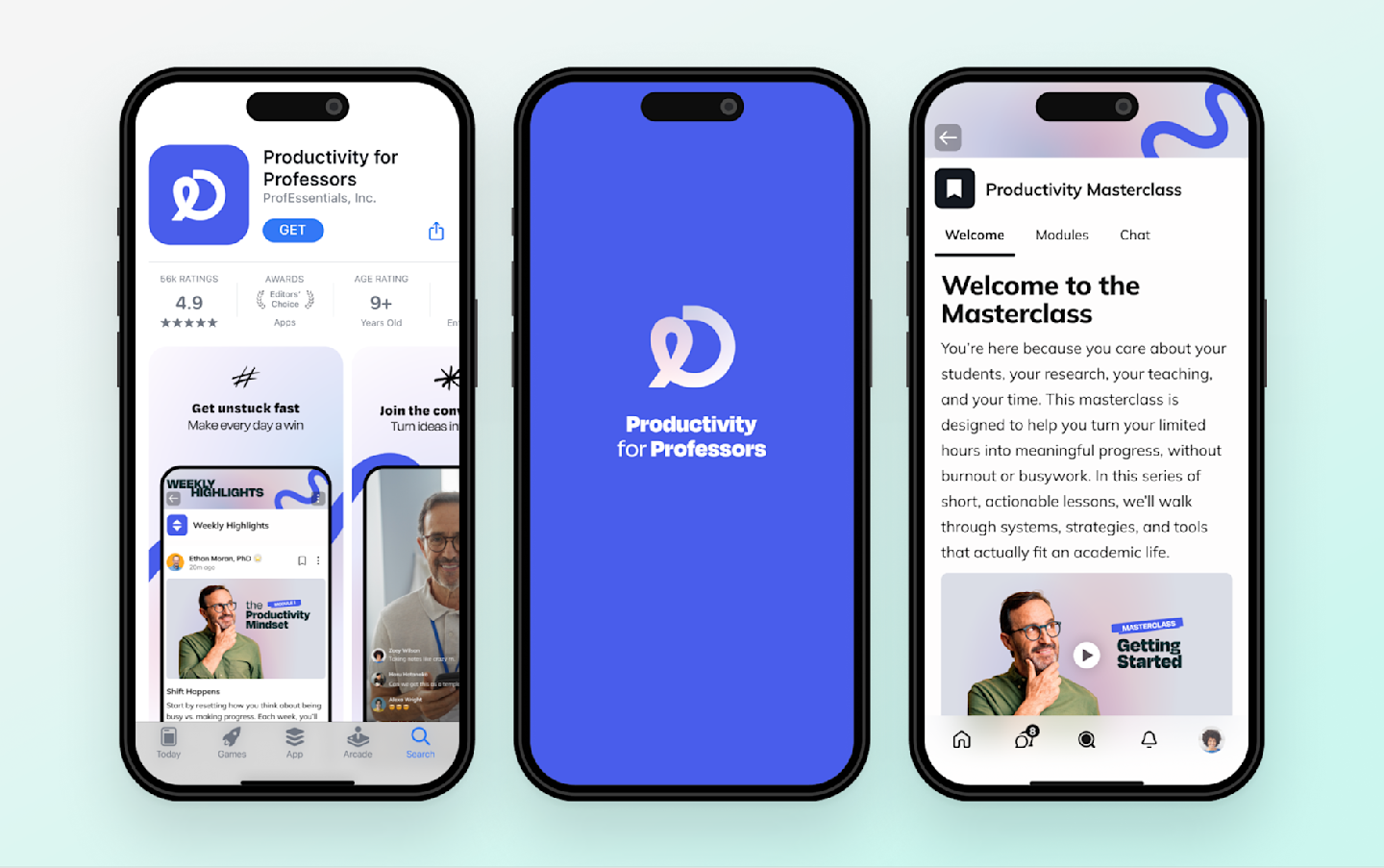
Mighty Networks is G2’s top-rated community platform, available on highly-rated, responsive apps for iOS and Android. And with Mighty Pro, you can get this as a premium app under your own brand. We’ve built branded apps for coaches and thought leaders like Tony Robbins, Mel Robbins, and Marie Forleo. Learn more here!
18. Can I host video courses, PDFs, and worksheets alongside live sessions in one place?
Yup! Mighty Networks lets you do all of that. With flexible Spaces, it’s easy to create any sort of offer you want. Mix live or pre-recorded courses, livestreams, group sessions, community forums, chat & messaging, long-form content, videos, PDFs, quizzes, and more!
Ready to start building your community?
Start a free 14-day trial to explore Mighty—no credit card required.
More like this
Join Mighty Community
Learn the principles of Community Design™ (and see them in action) alongside thousands of creators and entrepreneurs. It's free to join!

Online Courses
Creating a Course
Teaching a Course
Course Platforms
Selling a Course
Communities & Memberships
Community Platforms
Managing a Community
Building a Community
Growing a Community
Monetizing a Community
Content Creation
Creators & Entrepreneurs
Monetization
Content Creation
Starting a Business
Website Builders
Creating & Managing a Website
Events
Event Platforms
Hosting & Marketing Events
Branded Apps
Creating a Mobile App
Coaching Apps
Community Apps
Coaching
Mastermind Groups
Starting a Coaching Business
Coaching Platforms
Filter by Category
Online Courses
Communities & Memberships
Creators & Entrepreneurs
Events
Branded Apps
Coaching
Start your free trial
14 Days. No Credit Card Required.













